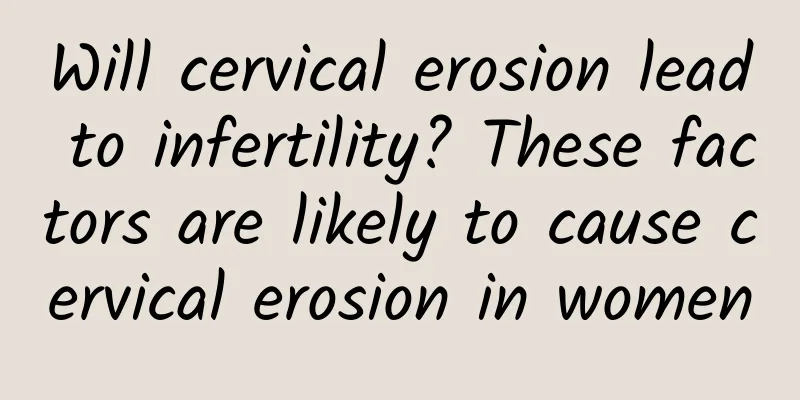What to do with missed abortion? There are 3 treatments

|
Missed abortion is a type of miscarriage that many pregnant women will experience. There are many different reasons for the treatment of this miscarriage, and different treatment methods need to be selected. Therefore, pregnant women must find out the specific reasons for their missed abortion in order to cure it as soon as possible. The more common treatments currently include progesterone therapy, surgical therapy, and drug therapy. Missed abortion is a common miscarriage phenomenon that occurs in many pregnant women today. The occurrence of this miscarriage condition causes great harm to the female body. Therefore, when a woman finds that she has the signs of missed abortion, she must receive treatment as soon as possible. Only in this way can she effectively avoid the occurrence of harm. So what should I do if I have missed abortion? |
<<: How to protect the fetus in case of recurrent miscarriage? Do these 3 things
>>: What are the causes of recurrent miscarriage?
Recommend
Menstrual pain, sciatica, headaches: save your own pelvis, exercise your core muscles to avoid crookedness
Save your own pelvis! Return your pelvis to its o...
How to take care of uterine effusion in daily life
Nowadays, the incidence of gynecological diseases...
5 tips for children to eat less snacks and stay healthy without getting fat
During the Chinese New Year, every household will...
Does severe cervical erosion require treatment?
Does severe cervical erosion require treatment? C...
I had an abortion and it caused inflammation and abnormal vaginal discharge
Inflammation and abnormal vaginal discharge after...
Specialized hospital for the treatment of congenital absence of vagina
Many patients are constantly looking for what kin...
What is an ectopic pregnancy
Pregnancy is a very happy thing for a family, but...
Eat at convenience stores every day and follow the dietitian's diet plan without gaining weight
Busy office workers are forced to eat like "...
How long after ectopic pregnancy can I have a baby
Ectopic pregnancy is also called ectopic pregnanc...
Secondary prevention of hyperprolactinemia
How to prevent hyperprolactinemia? Experts point ...
What is suitable for patients with cervical erosion? 8 kinds of food suitable for patients with cervical erosion
1. Stew a black-bone chicken and eat it regularly...
Do you know what are the early symptoms of uterine fibroids?
Uterine fibroids are a common benign tumor, estim...
What are the treatments for amenorrhea?
There are many ways to treat amenorrhea. Accordin...
What are the symptoms of uterine fibroids? How to choose surgery for uterine fibroids
Because people have different physiques, even if ...
Lose weight gradually without hurting your body. Lose 8% in half a year is just right.
"You seem to have gained weight?" Moder...









